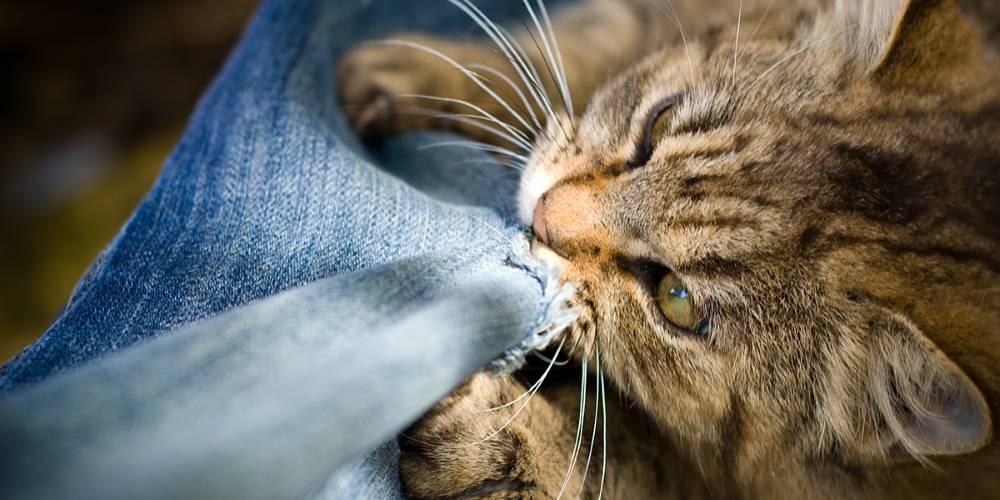Do Cats Punish Their Owners? – Understanding Cat Behavior

Do Cats Punish Their Owners? – Cats are known for their aloof and independent nature, which has led some people to believe that they punish their owners for their wrongdoings.
However, this is far from the truth. In this article, we will explore the reasons behind this misconception and the behaviors that cats exhibit towards their owners.
The Misconception behind Cats and their Behavior:
The idea that cats punish their owners can largely to attributed to cat owners misunderstanding their cat’s behavior and signals.
For example, if a cat is used to being fed at a certain time each day and their owner is late with their meal, the cat may become agitated and vocalize their displeasure (loudly). Cats are creatures of habit and routine, and any deviation from their routine causes them stress and anxiety.
Some people interpret this behavior as the cat “punishing” or enacting “revenge” on them. But in reality, the cat is simply expressing their frustration at the disruption of their routine. It is not meant to hurt you, rather it is trying to let you know that it is feeling uncomfortable with the new changes in its routine.
Another common mistake many cat owners make is being unable to recognize when their cat is being playful, and when it is being aggressive (pouncing, shallow bites, and swatting). You may have noticed that during certain parts of the day, your cat is more active and aggressive than usual. This is merely your cat trying to play with you, just like how it would play fight with other cats. If this bothers you, consider getting your cat a playmate.
Sudden aggressive behavior can also be a sign of an underlying medical condition. If your cat does not have a history of aggression, and there have been significant changes in its routine, you should get it checked at the vet.

Behavioral Indicators:
Several behavioral indicators can help us understand a cat’s mood and level of comfort with their surroundings and environment.
One of the most obvious signs is body language. When a cat is content and relaxed, they will typically have a relaxed body posture, with their ears and tail in a neutral position. However, when a cat is feeling stressed or uncomfortable, their body language will be more tense, with their ears pinned back and their tail twitching or held low.
Another indicator of a cat’s mood is vocalization. Cats are known for their vocalizations, and each type of meow, purr, or growl has a different meaning. For example, a loud, prolonged meow may indicate that the cat is hungry or wants attention, while a low growl may indicate that the cat is feeling threatened or defensive.
Understanding a cat’s behavior helps prevent misunderstandings such as the one we discussed earlier (regarding the change in feeding time).
How to Prevent Punitive Behavior in Cats
If your cat is displaying punitive (punishing) behavior, there are several things you can do to prevent it:
- Provide Adequate Resources: Ensure that your cat has access to enough resources, including food, water, litter boxes, scratching posts, hiding places, perches, and toys. A lack of resources can lead to stress and anxiety, which can contribute to punitive behavior.
- Positive Reinforcement: Use positive reinforcement to reward your cat for good behavior, such as using the litter box or scratching post. Offer treats, playtime, or verbal praise to encourage positive behavior.
- Avoid Physical Punishment: Never use physical punishment to discipline your cat. This can increase their stress levels and cause further behavior problems.
- Regular Playtime: Set aside time every day to play with your cat. This can help reduce stress and anxiety, as well as prevent boredom. If this is not possible, consider getting another playmate for your cat.
- Consistency: Be consistent with your cat’s routine, including feeding times, playtime, and training. This can help your cat feel more secure and reduce stress.
- Environment: Make sure that the environment is safe and clean. For example, if your cat’s litter box is not clean or smelly, it may voice its displeasure. If there have been any new changes to the environment recently, like the addition of a new family member, your cat will take some time to adjust. Use positive reinforcement as a way to get them adjusted to the new environment quickly.
- Consult a Professional: If your cat’s punitive behavior persists despite your efforts, consider consulting a professional animal behaviorist. They can help you identify underlying issues and develop a customized plan to address them.
Conclusion:
While cats may exhibit behavior that some people interpret as punitive, the truth is that cats do not have the cognitive ability to engage in this type of behavior. As cat owners, we should strive to better understand our cats to ensure a comfortable life for both you and your cat.
Hopefully, we have properly answered your question, “Do Cats punish their owners”.


